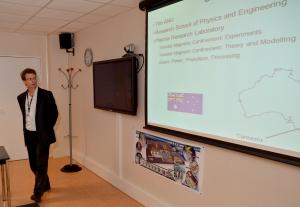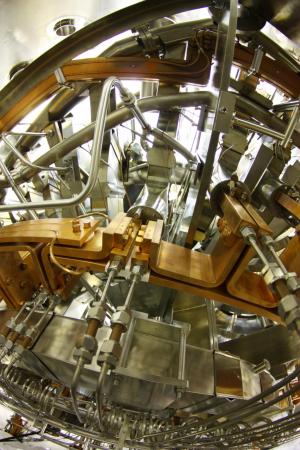The form this collaboration could take is open to discussion. "It is clear that Australia will not be a 'major partner' like the present ITER Members," says Matthew. "Australia has a rich diversity of energy options, so the national energy security driver is not perceived to be as strong."
The "frustration" Matthew acknowledges hasn't dimmed his enthusiasm and he remains "passionate" about the whole issue. "ITER," he says, "will define the fusion research program for at least the next generation. We want to be part of that enterprise ..."
Last Wednesday in Cadarache, Matthew got his first opportunity to feel the reality of the project that has been on his mind for so many years. "The ITER site is huge," he said, "it is one thing to know the basics of the machine, but quite another to appreciate the size and scale of the entire site. What also struck me is the enthusiasm and helpfulness of the ITER staff, as well as the friendliness of the people of Aix-en-Provence and Marseille ..."
The sheer size of ITER might dwarf that of the recently upgraded
H-1 NF stellarator operated at ANU's Plasma Fusion Research Facility, but although size matters, it is not all that fusion is about. Australia's fusion device is small (major radius R=1.0 m), but the fusion community there is strong, enthusiastic and determined, and the country has a
long history of breakthroughs and innovation in fusion research.



